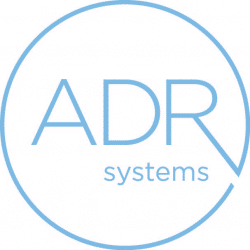Parties may be able to more effectively mediate their commercial case when they take full advantage of pre-mediation and post-mediation contact. Communicating with the mediator before or after the mediation may not be utilized in all sessions, but it can greatly contribute to the success of a mediation. Pre-mediation contact sets expectations, and lowers the risk of surprises that can pose as roadblocks to resolution. Post-mediation contact allows parties to be proactive even if their case does not settle in the first session, increasing the likelihood that the case will eventually reach an amicable settlement. In addition to their obvious benefits, pre-mediation and post-mediation contact are flexible, and can be tailored by both the parties and the mediator based on the parties’ needs.
The Benefits of Pre-Mediation Contact
Pre-mediation contact can lower the risk of surprises occurring during mediation by setting expectations for the parties, the mediator, and the case manager – especially for cases that involve multiple parties, complicated issues, contentious litigation, or cases with emotional overtones. Providing information on the background of the case and its participants helps the mediator more accurately determine how to best approach the mediation. For example, counsel can explain to the mediator that the parties in a business dissolution dispute are very hostile toward one another. This will help the mediator decide whether or not to bring parties together in a joint session at any time during the mediation.
During the joint call or in-person meeting, parties can inform the mediator and the case manager about the nature of the dispute and the status of litigation, as well as inquire into the mediator’s general style. The mediator can also assist parties in resolving any logistical issues or other matters in preparation for the mediation during the call. For instance, parties can decide whether opening statements or presentations will be made, and whether the submissions will be exchanged or kept confidential. This lowers the chance of misunderstandings occurring that can get the process off on the wrong foot, and cost time at the mediation.
Pre-Mediation Contact is Flexible and Can Be Determined by Parties
Although a preliminary joint call is usually the first step in the mediation process, pre-mediation contact can take many forms, and can be shaped to fit the needs of the parties. Depending on the circumstances, the mediator may find it appropriate to follow up with the attorneys separately after the joint call, and after the parties’ submissions are reviewed. During these separate phone conversations, the mediator can ask counsel clarifying questions about submissions or case history.
While the mediator may initiate calls prior to mediation, counsel may feel it necessary to contact the mediator as well. Counsel may consider doing this if they want to convey information they were not comfortable sharing in the joint call or their submissions. Counsel can also contact the mediator after the joint call to expand on a topic inferred in the submissions, such as animosity between parties.
The Benefits of Post-Mediation Contact
Even if a settlement agreement is not reached in the initial session, post-mediation contact allows parties to continue working with the mediator to build on progress made during the mediation. After the mediation session, the mediator may offer to stay involved in some capacity if it is thought that negotiations can be taken further and a settlement is possible. However, if post-mediation efforts are to be successful, it is important to keep in mind why the session did not result in settlement. For example, if parties could not agree on a number in the mediation, further negotiations will likely not be effective if parties are unwilling to reconsider their positions. Much like pre-mediation contact, post-mediation contact can take many forms, and can be tailored by both the parties and the mediator.
Post-Mediation is Flexible and Can Be Determined by Parties
If parties are not ready to litigate their dispute, they may initiate communication with the mediator, and with each other, to determine the best plan of action for post-mediation negotiations. Parties can decide how, and to what degree, they want to involve the mediator in post-mediation settlement discussions. For example, if parties prefer to deal directly with one another, and are close to resolution, they can simply communicate between themselves, only bringing in the mediator to help sort through complicated issues or any impasse that may develop. Alternately, parties may decide that progress made in the first session warrants more mediator involvement, or even another mediation session. Either way, the parties maintain control of the mediation process and determine the course for post-mediation follow-up.
Understanding the benefits of pre-mediation and post-mediation contact with the mediator promotes better communication and can help define a path to amicable resolution, even if a case does not settle at the initial session. In addition to their more traditional benefits, pre-mediation and post-mediation contact can take many forms, and be shaped to fit the needs of parties. Lastly, parties can decide what the best options for contact are for their particular case, allowing for more control over the timing and outcome of their dispute.
Hon. Richard J. Billik, Jr., (Ret.) worked with Ashley Jordan of ADR Systems to develop this piece.
Judge Billik is a senior mediator and arbitrator at ADR Systems, and is highly experienced in resolving complex commercial and business litigation. Known for his diligence, efficiency, and fairness in managing his court call, Judge Billik presided over cases in the Cook County Circuit Court Chancery Division for 12 years.
For Judge Billik’s full bio, click here.
To request Judge Billik’s availability, click here.
ADR Systems, It’s Settled.™



